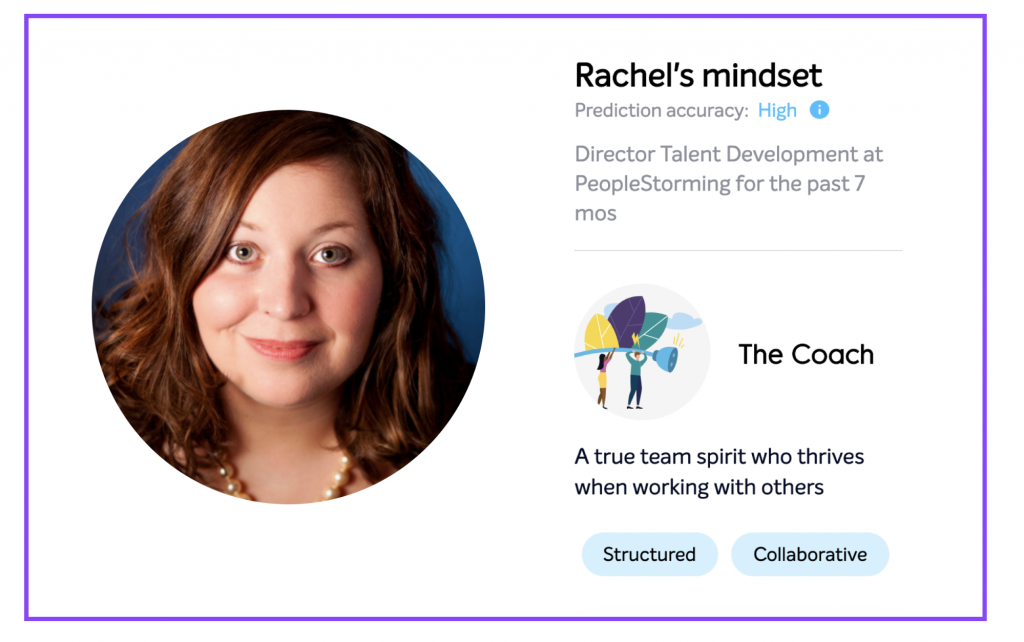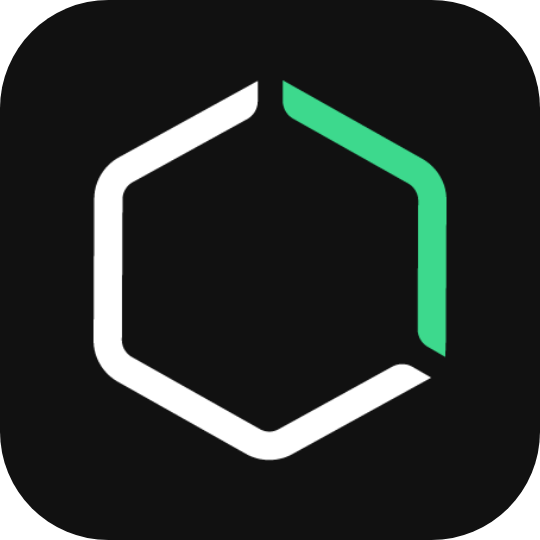In this edition, CULTURED had the pleasure to talk with Rachel Ben Hamou, the founder of PeopleStorming. She talks about her story of founding PeopleStorming, the competence of facilitation and about investing in healthy people dynamics.

CULTURED: What made you found PeopleStorming?
RBH: I was a Product Manager in a large video games company called Riot Games, working in the talent problem-space – supporting learning, culture, recruiting and people experiences. We built cross-functional teams to serve the needs of the people in the company. It was a very product and customer oriented approach and felt very forward-thinking compared to many HR/L&D teams I’d worked with previously. I believe the approach was a key part of how we scaled the company from 200 to 3000 people.
More specifically, we created an overarching initiative called “Product Riot”. It consisted of cross-functional teams based around Rioter (what we called our people) needs. It felt great to be part of a modern approach to work and people. Of course, with new territory there are always challenges. In particular, folks who came from the more traditionally-structured business operations organizations, had a steep learning curve in approaching their work with a product mindset. Many of my colleagues were still used to the project mindset and found it hard to think about lifecycles, launches, and most importantly, iterative value.
Initially, I was hired into UX by a UX Director who wanted to bring a more design-thinking approach to recruiting. She even built Candidate Experience into my first title. I learned an absolute ton about recruiting, interviewing and hiring through the years I spent with this problem-space.
I was really enjoying the work, and holding the vision for the different product spaces. Towards the end of my time there, I worked on an internal focus group product to better understand the challenges the organization was facing. It allowed me to spend more time designing experiences and using my facilitation skills (facilitation being one of my lifelong passions).
After five years designing, leading and delivering on talent-focused products and services, I realized that a huge swathe of professionals would be happier in their work lives if their companies adopted a similar product- and customer-centric approach.
This was the inspiration for PeopleStorming. We want to bring fresh thinking to help people build and sustain brilliant organizations. We want to support them with this idea of recasting business operations (talent, finance, facilities etc) as a product organization with a customer centered approach. In so doing, we will help them think deeply and cohesively about the career experiences they are providing to their customers. We’ve been coming at this from a few different angles as part of our commitment to innovation and experimentation. This means working with individuals as career coaches, teams as facilitators and organizations as consultants and designers.
CULTURED: Tell me a little bit more about how you actually ended up doing that kind of work? What brought you to facilitating people dynamics?
RBH: I went to a smaller, specialist university with a focus on industry skills in addition to academic grounding. I took a management degree and it had a huge bias towards entrepreneurship which appealed to my personal energy and creativity. In my final year, coaching as an industry was beginning to take off in the UK. Not many people talked about it but I found it a really interesting subject. At the time, the job market was very harsh and recession meant that many people were out of work in the UK. Because of this, students were told it would be hard to get a job.
I always found this quite a depressing message and I started exploring self-coaching as a way to keep me motivated and moving forward. It became the subject of my dissertation and there was funding from an EU project that allowed me to do some additional research also. It excited me enough that I continued my studies at post-grad level. At the same time, I was working in my first role as a manager, which I left a year or so later to pursue more coaching work.
That said, your question was about facilitation … which for me is completely intertwined with coaching. I didn’t have a name for “facilitation” for the longest time. I just didn’t know anybody who called themselves a facilitator. We were all workshop leaders, trainers and coaches. Even now, facilitation (as a term) is not as used as broadly as it could be. This is a shame since, underneath it all, a facilitators job is to support everyone to do their best thinking.
I get so much pleasure from creating environments and designing experiences for people to have the space and conversations they desperately need. Often they need these interactions simply in order to be seen and heard in today’s frantic, busy world. I’m endlessly impressed at the resourcefulness of humans and how we can problem-solve when we have the capacity and breathing room to do so.
CULTURED: Since you have a customer-oriented business, what has been the most challenging situation that you’ve had with helping a customer?
RBH: One thing that comes to mind is the facilitation design for a sales and marketing team offsite. A couple of members of the team came to my training on facilitation and they thought “this is great; our manager really needs the help”. I ended up speaking to him, and found out that he was literally on the other end of the spectrum; he didn’t know what facilitation was and it was completely new to him. He came from a very business-oriented background, as opposed to a people-oriented one. At the same time (and he gets a lot of credit for this), he was determined to see his team succeed. His heart was in it, but had no idea how to make this offsite work. It was pretty challenging because we were both educating and coaching him as well as designing and delivering the entire offsite. It was a great growth experience though and I wouldn’t change anything about it in hindsight. The major challenge was timing because they had already scheduled and booked flights for the event before they realize they needed the help so the window of design time was very small.
CULTURED: Being a psychology-driven company, and working with a lot of people that have social sciences degrees, how do you handle the expertise bias? How do you assess the level of knowledge on the customer side to make sure that your customers understand why investing in healthy people dynamics is important?
RBH: If you’re working with a customer, and they don’t know what you’re saying, then you’re not doing a good job. It’s on you to translate something that’s difficult or different for them into something they can understand and something that resonates for them. Sometimes that means we have to emphasize how having happy, productive people leads to increased profits … other times our clients already know this but don’t know what kind of changes to make.
This is why our coaching skills are so important. When we have a conversation, we listen for the way that our clients understand the world and their perspective on things. We ask a lot of questions, starting with the high level topics and working our way down. So for example, if I start talking about “employee experience,” and they’ve never heard of the concept, then they’re not going to be engaged in the topic. So it’s your job to translate those things; to rearrange concepts and topics so that you’re on the same page with your client.
CULTURED: What does 2019 hold for you and the team?
RBH: We want to share more of our tooling. A few years ago, I developed this retrospective model that was based on a very complex situation with a team experiencing high conflict. It’s a model that I want to productize; I might make it open source, make it a content element, or simply take it into organizations myself.
We also want to launch a lab experience in Silicon Valley where we design and test-drive new games, exercises and workshops with professionals from across the area. They get to receive some innovative professional development and we get fast-feedback on our ideas so we can refine them for the audience.
We’re looking at launching an online facilitation course to help us scale the skills we believe will change organizations. I actually believe facilitation is the greatest skill a leader can have.
We’d love to start a podcast to share more of our talent related design-thinking and get some good conversations going. This might be on the 2020 roadmap as we’re really engaged with so many clients this year and they are our top priority.
We continue to work as coaches for individuals and this helps us to see themes that feed into our talent development programs.
The nice thing is that being a small consulting firm gives us great flexibility when thinking about our next steps.
CULTURED: When you start a business, you need to manage all the elements involved in the process? How do you make sure that you’re in a place that you enjoy? What’s your approach to keeping balance and staying sane in your founder journey?
RBH: I’ve definitely experienced the good and bad kinds of stress, so I think I’m well-tuned to when I’m busy-but-enjoying-myself versus busy-and-feeling-crushed. If I start to go down the latter path, I take a step back and just go “Look, this is your business; you get to decide what to do; no one’s making you do this work. If this isn’t work that you enjoy, then redirect towards the work that you do enjoy.” And this is something that requires a lot of self-discipline because there are plenty of things that I don’t enjoy, but that are necessary for me to do my job properly.
Anyone who knows me will tell you that I am incredibly organized: a life-long, optimizing systems-thinker. It’s a big part of the reason we have such happy clients. I have to be careful not to over-optimize and chase the 1% improvement that just isn’t needed – because that can take me to burnout.
Even work that I’m less good at or that I find less enjoyable – I try to make it fun. I treat everything with curiosity – like a puzzle to be solved. I act that way, until it becomes real and then it’s easier.
In the end, it all comes down to figuring out what you are willing to do, as well as the opportunities that you will simply pass on. I’m a big fan of applied essentialism.
CULTURED: Do you have a good estimate on how many ideas you let pass versus how many you accept?
RBH: Every time I have a good idea (I’m a very creative person and so I tend to have a lot of ideas), I ask myself, “why”, at least five times. I allow for the fact that ideas don’t have to be acted upon. I can just enjoy the idea. Ultimately, I have enough ideas for at least 20 lifetimes so ruthless prioritization is key. Maybe I act on 1 in 50 ideas?! I haven’t measured!
CULTURED: Can you say more about the company culture at PeopleStorming?
RBH: Culture is one of those things that exists organically – for better or for worse.
We really value transparency – so we’ll always be straight with clients. As consultants, we want to teach you to fish, not bring you fish whenever you need them. Did I get the right metaphor?!
Playfulness is another of our values. Using improvisation principles and practices—and just being playful—is how we deal with all sorts of situations. The other value is empathy. So: transparency, playfulness, and empathy; as long as we embody those, we are always living our best lives.
CULTURED: How would you make those values come to life when you actually take on new people?
RBH: The playfulness part is about how we connect and whether or not they take a playful approach to their lives. What happens when things go wrong? Do they see it as a gift or do they feel crushed or deflated or shamed? It’s also important to know if they’re comfortable with experimentation. If I ask them to try something, I’ll take notice of their reaction. If they express curiosity, I get an idea of their approach to play.
CULTURED: Which trends are you observing in the HR Tech and People Analytics field that you find exciting? And are there things that worry you about the direction the market is developing into?
RBH: The thing that’s always on our mind when it comes to analytics is: are we measuring the right things? This goes all the way back to solving the right problems and how we’re controlling biases. How clean is the data? Are we asking questions where the outcome will be something that we can work with? I’ve seen many places that survey people, and when they find that the answers aren’t what they expect, they don’t do anything about it. You shouldn’t ask a customer for feedback if you’re not open to change as a result of it.
CULTURED: What do you think about the way we address diversity and inclusion?
RBH: I hear a lot of great stuff on diversity and inclusion and much less on the subject of belonging. That’s the one I’m particularly interested in as I think that it connects deeply with the facilitation mindset. This is because it revolves around people’s perception of whether or not their contributions are valid, their voices heard. I often think “what if we could measure how much people belong?”. What if we could get people to say “I felt like I belonged at work today because X happened” or “I felt like I didn’t belong because Y happened”? Basically, we could take all this data and perhaps some focus groups and begin to define the types of behaviors and language that helps people feel like they belong. I have a framework for a talk on this and I’ll likely submit a speaker proposal to some culture/HR conferences next year if I have the capacity to attend them. I’d love to support some great conversations on belonging.
CULTURED: Whom do you like to follow currently? And what are you currently reading?
RBH: I try to follow a lot of different people so I can keep getting diverse perspectives. The cult-like following of celebrities bugs me so I try to avoid putting people on a pedestal. I try to read a wide range of stuff. I mostly read up on topics related to design thinking, facilitation, service design, product management, HR, and psychology. I’m just kind of sucking in different things from different directions and looking at patterns, parallels and differences. I’ve been told my pattern spotting ability is strong and I’m almost certain this is from a decade of practicing improv (where you have to spot patterns on-the-fly).
CULTURED: Do you remember something in particular that stood out?
RBH: One of my favorite books is Thank you for the Feedback. It’s funny because there’s been a controversial HBR article recently about how feedback is not the right thing to do, but I still think that this is a very valuable (when it’s done in a trusting environment with respect and kindness).
CULTURED: How do you think this relates to the radical candor framework?
RBH: I like it. I spend a lot of time helping people understand that kindness can take a lot of different forms and that kindness doesn’t mean ‘ruinous empathy’ – to use Kim’s wording. Sometimes people forget that to have a really good feedback culture, there needs to be a loving culture. As long as you have a loving culture, all the things related to feedback become immensely powerful. But if you put that on the wrong foundation—or on no foundation—then it could be dangerous – toxic in fact. This is why you need both good people AND good tools; the tool itself doesn’t stand alone without humanity. When you have those two together, it’s really powerful.
CULTURED: Podcasts! Which ones are you fond of?
RBH: I subscribe to about 165 podcasts. I am a huge fan of the medium. Growing up, my mother always had the radio on so it was like another member of our family. One of the podcasts I really like is HBR After Hours. I love the robust nature of their discussions even when the subjects are controversial (like the #metoo movement). I think the presenters embody a lot of the PeopleStorming values of playfulness, empathy and transparency. When I listen to it, I feel like I’m having a conversation with friends, even though I’m not participating.
I like NPR Storycorps because it offers short stories and I love storytelling as a theme and as a skill. Helping people connect with each other through stories is a big part of the work we do so I always feel inspired when I listen to this show. Many of our coaching clients come to us asking for help with telling their story – because our stories are often complex and when we’re connecting with new audiences (often in job interviews), we need to be able to frame things quickly in a way that resonates with people.
My favorite podcast is BBC Word of Mouth. I’m British and there is nothing that says the UK to me more than the BBC (well maybe The Queen). It’s presented by a poet laureate called Michael Rosen. He examines language and words, and there’s so much in that. In coaching and facilitation, language is everything: The change of one word in a question can unlock a coaching conversation. I’m constantly amazed at how much you can help people by asking the right questions.
Thank you, Rachel.
If you’d like to become part of the PeopleStorming community (and receive their Culture Insights newsletter), head over to…
https://mailchi.mp/beb9dda9ff34/peoplestorming
You can also connect with PeopleStorming in all the usual places…
- https://www.facebook.com/PeopleStorming
- http://www.twitter.com/peoplestorming
- http://www.linkedin.com/company/peoplestorming
- https://medium.com/peoplestorming
—
Thanks for checking out our Expert Series! We publish new interviews regularly with People leaders from Fortune 500 companies, hyper-growth startups, and everything in-between. To stay in the loop, subscribe to our email newsletter here: Beyond the obvious: Hacks for high-performance leaders and teams.





